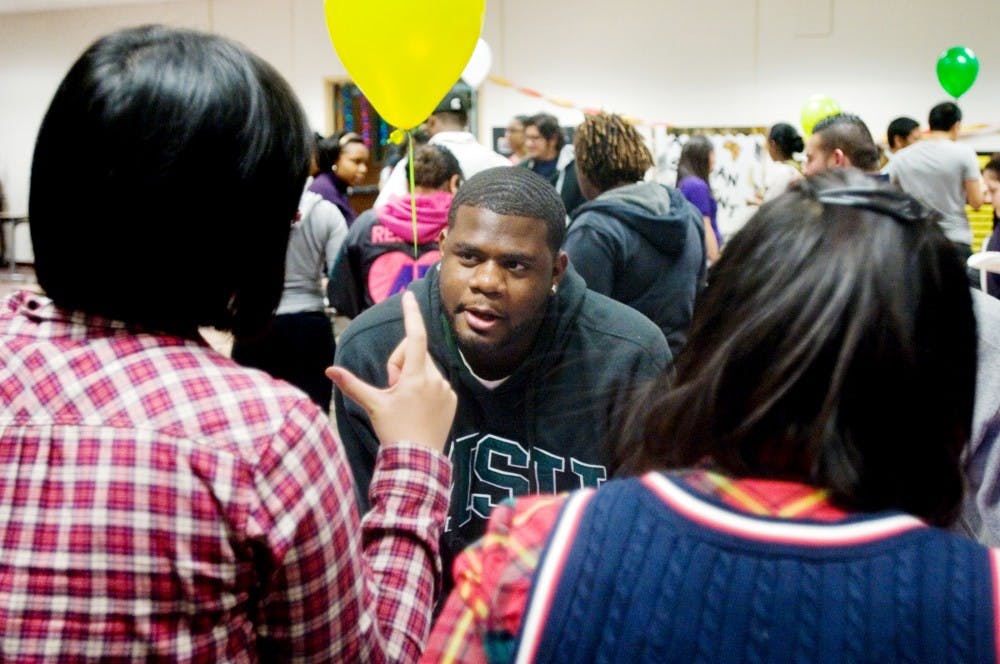The mission statement of the Office for Inclusion and Intercultural Initiatives at MSU reads “Advancing not only diversity — but also inclusion — requires commitment, leadership and the participation of the entire campus community.”
While undoubtedly an honorable goal, the struggle of overcoming cultural differences and stigmas can prove to be difficult. Intercultural Aides, or ICAs, are the student representatives who truly put the university’s money where its mouth is, and their purpose goes well beyond a mission statement.
The aides must be intimately involved in the dynamics of their floor environment in order to wholly promote an atmosphere of inclusion, no matter a student’s background.
The overall goal is to “help students transition academically, socially and culturally,” accounting senior and ICA Da’Quan Moore said.
Many ICAs put themselves on the level of the resident in order to provide a layer of empathy over the relationship between ICA and student, chemistry senior and ICA Briayna Miles said.
Human resources senior Mariam Alamiri is an international student from Saudi Arabia and said she was already doing the job before she was even hired.
"Being an ICA is part of who I am as a person."
Human resources senior Mariam Alamiri
“Being an ICA is part of who I am as a person,” she said.
Upon her arrival to MSU from Saudi Arabia, Alamiri was overwhelmed by the culture shock of an American Big Ten university. The English language was now everywhere and, not feeling confident in her speaking ability, Alamiri found solitude in her own room.
However, this is an impossible way to live one’s life, she said.
“People need to be around other people,” Alamiri said. “It’s part of who we are.”
Alamiri was able to traverse the maze of a new culture as well as shed inhibitions about making friends from other cultures through the help of her ICA. Instantly, Alamiri was hooked with the idea of the job and “loved the idea of being a role model.”
She became an ICA to “help students who want to preserve their culture,” while also “breaking down barriers” that prevent international students from feeling included.
The “barriers” are often a difficult aspect to eliminate, Alamiri said.
She paid notice to the paradoxical notion of international students only associating with those from their own country. International students expect not to be included upon their arrival because of this existing stereotype, Alamiri said.
Moore is in his third year as an ICA and said he enjoys planning social events in his hall in order to welcome international students.
One such event Moore loves utilizing to break down barriers is a floor basketball night.
“The event got great feedback,” Moore said, praising the universally relatable goals of the sport as a means of “breaking down cultural barriers” that would have otherwise prevented some of these students from being friends.
Another barrier that ICAs like Moore seek to dismantle are the stigmas against any group that are perpetuated by certain sayings.
Support student media!
Please consider donating to The State News and help fund the future of journalism.
“Calling something gay in a negative tone is a common one,” Moore said, adding his immediate goals are to take “small steps to build an inclusive environment for all,” no matter the form of individual identification.
This can prove tricky, as Moore feels the strongest about helping those from minority communities as well as those who are first generation college students.
Likewise, Miles feels strongly about providing adequate academic support systems for these students.
“The sources are available,” Miles said. “Some students just feel intimidated or ashamed to seek them out.”
Miles feels she, as an ICA, is an avenue for these students to seek support in any area of college life, no matter if it is academics or a social life.
Discussion
Share and discuss “Intercultural aides work to create atmosphere of inclusion” on social media.







